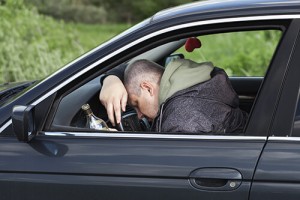What Is a DUI and DWI in New Jersey?
Posted July 4th, 2021 by Anthony Carbone, PC.
Categories: Criminal Defense.

Drunken driving laws differ slightly from one state to another. As such, every state coins and applies a different term and definition for operating a vehicle while under the effects of illegal drugs or alcohol. Generally, DWI refers to” driving while intoxicated,” whereas DUI stands for “driving under the influence.” But precisely what is the difference between DUI and DWI in New Jersey? Are they different terms, or can they be used interchangeably? Read on to find out.
If you have been involved in a DWI or DUI accident in New Jersey, contact a Hudson County Personal Injury Attorney today to learn about your next steps.
Drugged Driving (DUI) in New Jersey
In New Jersey, you can be charged with driving under the influence of a schedule 1 drug like cocaine or heroin or driving using legal or over-the-counter drugs if these substances make you drive like someone who is not sober. The prosecutor in your case will employ the expertise of Drug Recognition Experts to evaluate you and give a report that can be used as evidence.
Usually, the DREs will check for symptoms of intoxication, which may include:
- Elevated vital signs
- Memory loss
- Lack of balance
- Depressed pupils
They may also test your blood and urine to check for the presence of drugs or perform a standard sobriety test, with all the information gathered being used for the prosecution side.
Drunk Driving (DWI) in New Jersey
Drunk driving or driving while intoxicated refers to driving at .08 or more blood alcohol concentration (BAC). State statutes use this number as the cutoff for DWIs because it is accepted that drivers cannot drive cautiously as a sober driver would with this level of alcohol in their blood system.
To determine the intoxication level, a driver may be subjected to a chemical breathalyzer test or rely on the testimony of the arresting police, who may have noticed signs such as slurred or slow speech, poor coordination, and red or watery eyes.
DUI vs. DWI in New Jersey
While a DWI is taken to mean driving under the influence of alcohol or illegal drugs, DUI is often specific to cases involving drugs like cocaine, heroin, marijuana, and prescription drugs. Nonetheless, both cases are prosecuted under the statute N.J.S.A 39:4-50, which defines punishments to include:
- A $250 to $1000 fine
- Suspended driving privileges
- Incarceration for 30 to 180 days (or more for subsequent convictions)
- Attending drunk driving classes
- Installation of an ignition interlock device on your vehicle
These penalties apply to both cases, with some caveats. A first-time DWI carries a fine of $250-$400 and a license suspension of 3 months; a first-time DUI comes with a $300-$500 fine and a 7-month suspension.
Talk to a Hudson County Personal Injury Attorney
What is the difference between DUI and DWI? In New Jersey, the sentencing and prosecution of driving while intoxicated and driving under the influence fall under one set of statutes: N.J.S.A.39:4-50, with the principal definition being Driving While Intoxicated. This means that the terms are pretty much the same and can be used interchangeably to mean the same thing.
If you have any questions regarding this matter or have been injured in a DWI accident and need legal representation from a Hudson County Personal Injury Attorney, call Anthony Carbone, an expert, at 201-829-3805 to schedule an appointment to discuss your concerns.


